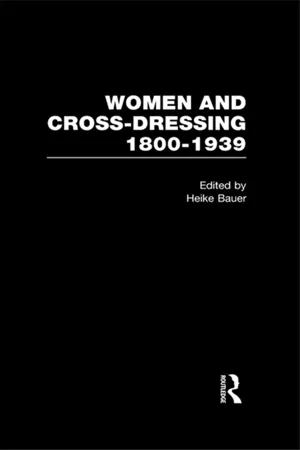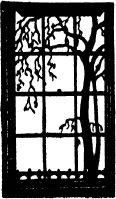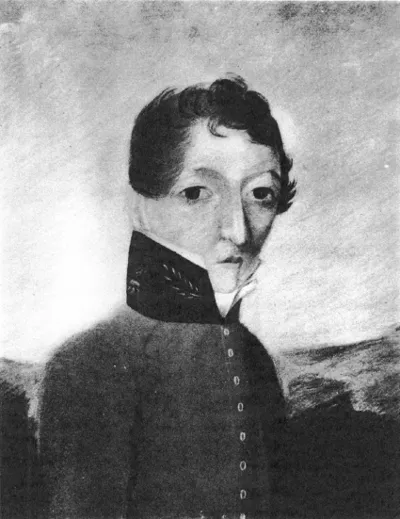![]()
DR JAMES BARRY: HER SECRET STORY
by
OLGA RACSTER AND JESSICA GROVE
DR. JAMES BARRY from the original miniature
PREFACE
SOME explanation of the document which fills this volume is needed to satisfy the minds of those who read this almost unbelievable romance of a hundred years ago.
Its origin dates from 1911, nearly fifty years after the death of Dr James Barry.
Our interest in the story was first aroused on hearing that the woods near Camps Bay were haunted by a young officer in Georgian uniform. The name in life of this lonely apparition was Dr James Barry. Surrounding its supposed appearances were fragments of anecdote sufficient to fire the imagination of any person, whether a writer or not. The appeal it made to us lasted over many years, in fact its first allure has never been lost.
From 1911 to 1919 we made it a subject of research at the Cape. The inquiry gave rise to innumerable assertions, doubts, denials. Our efforts were often baffled, but the many setbacks only made more compelling our wish to get to the bottom of the mystery.
Who was Dr James Barry?
It was discovered that not every South African had heard the name, or knew that the gallant little figure in uniform had proved after death to be a woman. Some people could supply fragmentary anecdotes handed down from grandparents, but, except the short account in the Dictionary of National Biography, there was no definite statement about her or her origin, or the reason for her life-long sex-deception.
The extent of our researches, and the degree of authenticity which the story claims, are dealt with in the Appendix to this volume. Every scrap of information we have obtained has been woven into the fabric of our story.
Women who have lived and posed as men have been numerous, but few have sustained a lifelong disguise so successfully as did Dr James Barry. To the day of her death her mentality triumphed over her frail body, enabling her by its strong purpose to carry through her marvellous deception. In her reports she proved herself to be a skilled doctor. She wrote fearlessly and frankly. Who she was and why she renounced her sex is a story the years have hidden. But the fact remains that she was the first woman doctor, and she more than successfully competed with men on their own ground a hundred years ago.
It is with all reverence to this buried romance that this journal, which she might herself have written, has been undertaken.
OLGA RACSTER
JESSICA GROVE
Johannesburg, S. Africa,
April 1932
Edinburgh, January, 1812
THIS damnable surgery!
These operating tables are like shambles, and the screams and shouts of the poor suffering things! Johnson told me to-day he thought I should faint when they took a man’s leg off. I turned upon him furiously when we got out of the operating theatre.
‘Have you no pity? Are you completely callous? Can you listen to such screams of agony and feel nothing yourself?’
‘I’m to be a surgeon, and surgery is the greatest of all professions, d’ye ken that? It’s men’s work, not woman’s.’
‘What do you mean by “woman”?’
‘When ye turned white, ye made me think of a wife.’
God! how he frightened me. He thinks I am a weakly young student whose physical failings it pleases him at times to defend. What I lack in fist power I make up in brains. I can always beat him in knowledge.
This time I began to argue with him. ‘If women were surgeons,’ I told him, ‘they’d find some way of alleviating suffering.’
He nudged me with his elbow.
‘Ma man, ye’re fond o’ the women. Always a word for ’em. And how would they stop the patients from squealing, eh? Tell me that!’
I did tell him. I said that he didn’t know anything about the history of surgery. Pliny two thousand years ago had a sleep-giving drink of mandragora.
He laughed at me, quoting Shakespeare:
‘“Not poppy, nor mandragora,
Nor all the drowsy syrups of the world,
Shall ever med’cine thee to that sweet sleep
Which thou ow’dst yesterday.”
‘Is it a love philtre ye’d give them to spare their pains?’
‘Augustus II of Poland had his foot off after they’d given him an opiate. They gave it to him after he had gone to sleep in his bed, and when he woke up in the morning his foot was gone. Can’t you see, Johnson, that the professors have somehow lost a great deal of knowledge?’
‘Stop the gangrene and ye’ll be saving lives. Can ye suggest anything for that, my learned friend?’
I looked at him, the tall, bony Scot with his lean, eager face, and kept silent.
As we were coming home I was in terror. A crowd of rough young men and boys from the lower parts of the town, armed with bludgeons, had overcome the police. They were robbing every individual they came upon. Some of them met us as we turned down a dark alley. Johnson is a good boxer; he fought through them, knocked them down. But a fellow got hold of me. He pushed me up against the wall, he struck me in the face, tore the buttons off my coat, robbed me of the money in my pocket, and shook me till my teeth were chattering.
‘Ye puir creature,’ he kept saying.
Johnson called out to me: ‘Give him one on the jaw. Go on, land with ye right, man!’
The bully got me down on the ground and he would have clubbed me on the head but for Johnson, who got free and gave him such a punch that he fell all of a heap. Having done that Johnson picked me up and carried me home. He laughed as I lay in his arms, saying:
‘Ma man, God Almighty spared nae pains when he made your head, but yer body’s as soft as a wean’s. D’ye ken that?’
His fingers went into my flesh like iron points, they were so lean and strong. He walked up the stairs to my room and deposited me on a chair.
After he’d lit the candles he turned to me.
‘Off with ye coat, I’ll help the babe to bed.’
This was a droll moment. For an instant I was so weak and tired I felt I could not fight against his eagerness to help me. ‘Let him do it,’ a voice said inside me. ‘The worst that can happen is for him to discover you are a woman, and then, then you would have to ask him to keep your secret.’ Already he had pushed aside my surtout, was pulling off my shoes and untying the knot of brown cotton tape that fastened my corduroy breeches at the knee. But I sat with my legs close together, and my body sunk deep in the chair.
‘God’s sake, what ails ye?’ Johnson asked looking closely into my face. ‘You’re a dwaibly body.’
Mercifully at that moment he discovered what I had already noticed. In the fight he had received a cut on the side of his head, and when he leant over it had begun to bleed rather profusely. Though Johnson is training to be a surgeon he has all a man’s timorousness when illness or misfortune touches his own body. When he saw his red blood dropping on the floor his face assumed a look of horror. On my side the woman’s instinct to alleviate a man’s suffering caused me to jump out of my chair with alacrity and busy myself with dressing his wound. As I stood over him, he pinched my body, commenting on its lack of muscle.
‘Ye’d have had a main fine time to-night if I’d not been there to protect ye. Ye ken that?’
And I answered in broad Scotch: ‘Aye, I ken it weell.’
‘Ye were fricht’ned?’ he went on. ‘God’s death, but ye were fricht’ned.’
I agreed with all he said, and then to my relief he made up his mind he had best get to bed. He lives in the same house on the floor below. After he left I locked the door carefully, as I always do.
Awoke this morning to the awful scrapings of Johnson on the violin. The noise he makes upsets his dog who is now howling loudly.
Johnson has no taste in music; I believe he hates it. He only plays the violin so as to get his fingers lissom for surgical operations. All the students have some method of gaining finger agility, so as to attain the high degree of skill required. I have invented my own series of hand exercises which are helping me. To use the knife well is a great ambition of mine. Blood makes me sick … sick … still, not so sick as it did at first. They laugh at my ‘woman’s hands’, as they call them, but they envy them too.
They would like to have my small wrist and long, quick fingers, when they are faced with the task of cutting off a limb.
Dr B. has instituted the use of a stop watch at operations. He talks of nothing but speed. It would be better if he considered the question of giving his patients a dose of sulphuric ether which would put them to sleep while being operated on.
A few days ago when a famous foreign surgeon operated before the students, he amputated the patient’s arm while someone turned aside to take a pinch of snuff. When he had finished the tops of two fingers were found on the floor. He looked briskly over the man he had operated on, seeking a place for the finger-tips, but could find none.
‘Mon Dieu … que diable!’ he exclaimed.
At the moment his assistant came and claimed the fingers for his own right hand.
Everyone praised the surgeon and had no sympathy for the assistant.
News from Salamanca.
Supplies for the army seem to be nil. The army is retreating.
Sir Henry Smith’s wife, who is a Spaniard by descent, from an old Moorish family, has been showing marvellous courage. Her name is Juana Maria de los Dolores de Leon! The poor creature is constantly fleeing from Napoleon’s advancing army. She is described as a woman who glories in discharging every obligation in life. Her repeated question to her husband is: ‘Have you done your duty?’
I cannot help thinking what sort of reply I should have had from my husband if I had asked him such a question. Had he been a man, a good man, a man of mind, he would have liked it.… The mention of him makes my hand tremble. I cannot yet set myself the task of writing about him in my journal. I feel amazed sometimes ot think such a man can be allowed to live. I am sick at heart over myself and my future whenever I allow my mind to dwell on him. With me there is always the unspoken terror of his finding me.
Had I graduated already I would have gladly volunteered for Wellington’s campaign. They want doctors and organization. Perhaps I should have been killed; then, before my Creator, might it not happen that my lonely struggle would be condoned and understood? There must be an infinite mercy on high to compensate! I like to think so. As it is I look ahead to the task of self-effacement which is a blank page before me.
As we walked down Princes Street I told Johnson about Sir Henry’s wife. I mentioned my wish to go to Spain. His reply was to be expected: ‘Ye maun have yer joke! The Lord peety ye! Ye’d be fricht’ned! The soldiers would bray at ye like cuddies!’
He gave me that look of his, from top to heels, which is so disturbing. He wants me to learn boxing. Being a warm friend he would like to see his own strength and energy thrust into the slim wisp, which is me. His persistence exasperates me, causing me to be terribly afraid lest I become a shameful failure and have to renounce my manhood.
Well, well. All the time I am in fear, I am yet planning. All the time my head is filled with schemes, and I am falling into the habit of dispassionate analysis of the ways of men.
I have set myself a great achievement, one that no woman has ever tried before (not for her whole life). I must not, above all things, be defeated in courage.
To please Johnson I am going to learn to fence. It is less dangerous for me than boxing. I must find some way of hardening my body. I live in fear of any hand touching me!
There was trouble at the students’ Debating Society last night. A discussion arising out of Jenner and compulsory vaccination S., an excitable, moody young man, stood up and denounced Jenner.
‘I tell you all, he was a liar! He picked other men’s brains. He did not discover anything.’
From the mists of tobacco smoke and the odour of whisky a student shouted: ‘Eh, man! Ye are perfectly fearless skirling against yer betters.’
S. has a reputation for being exceedingly talented, an indefatigable reader, holding strong views on many subjects. But Jenner was revered by many of the students, so that the unwise attack was bitterly resented.
‘Ye deserve to die in a bloody flux. None of that. Do ye hear?’
S. waited till their gibes were finished, before continuing to run his appointed course.
‘I’m a West Country man; my uncle is a Devonshire farmer.’
They greeted his statement with ‘Hoot! Hoot!’
‘Long before Jenner, all Devonshire farmers knew that if you had cowpox you couldn’t catch smallpox. Every dairy-maid understood that.’
‘D’ye think ye can fill up Scots folk with such muck?’
‘I’m telling you the truth. If you were not so ignorant …’ His voice died amidst the uproar which ensued.
‘You and your noansense’.… ‘Hoot’.… ‘Disjaskit rascal!’
S. faced round with a brave oath as two whisky-clogged young men excitedly came upon him.
I suppose women have the devil of fight in them as well as men, or perhaps it is that the endeavour to be a man is rousing masculine instincts in me. Or was it the call on my sympathies, which lean to the side of the oppressed? Or that wish to alleviate which is an ever-present impulse with me?
S. was glaring angrily at the two tipsy young men. One struck him on the face; I saw the red patch on his cheek and the blood streaming from it. With an overwhelming desire to help I dashed to his side. Screams of excitement rang through the room. I am not sure what I did.
All I remember is wrestling in the desperate fray, surrounded by a litter of glasses amidst a stress of voices and pushing bodies.
Johnson told me later I fought and scratched like a Musselburgh fishwife over a stolen creelful of herrings, but no recollection of my actions remains with me. Very soon I was flung into the street with a cut hand.
To-day I am wondering at last night’s sudden energy. It has l...



